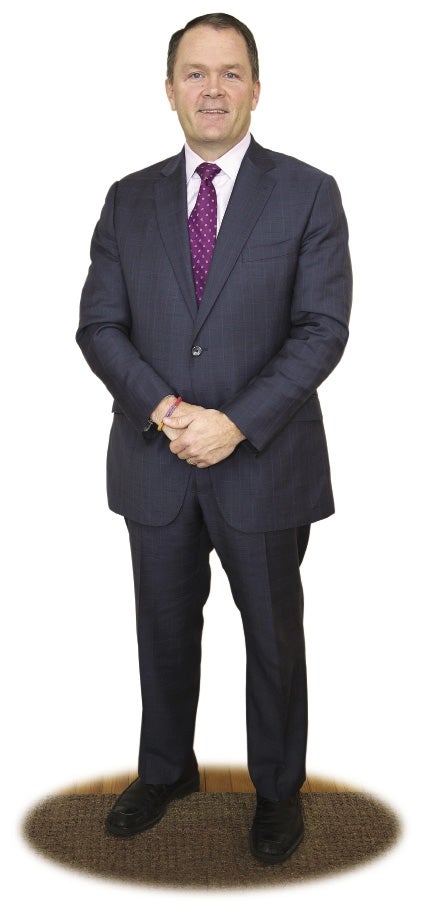
Q&A with John Heald, Heald & Chiampa Funeral Directors
 John Heald, Funeral Director and Partner, Heald & Chiampa Funeral Directors, Shrewsbury
RESIDENCE: Shrewsbury
EDUCATION: Bachelor's degree, Bryant University
John Heald, Funeral Director and Partner, Heald & Chiampa Funeral Directors, Shrewsbury
RESIDENCE: Shrewsbury
EDUCATION: Bachelor's degree, Bryant University

The funeral home industry isn't for everyone. But John Heald and his partners — his brother Jim, and David Chiampa — are taking a different approach to their now five-year-old business. Heald is a fourth-generation funeral director and embalmer who also serves as head of sales and business development for Tributes.com, whose chairman, Jeff Taylor, was the man behind Monster.com in the early dot-com days.
There aren't many people who would have a dream of running a funeral home. Aside from the fact that some in your family were funeral directors, what draws you to this industry?
I don't think the average person, as they're getting to the career stage of their life, wakes up and says, “I want to be a funeral director.” But those that do and those that haven't been in the family business, per se, are drawn to it. Sometimes (it's) described as a vocation (like) the clergy. They want to help people.
The reason we chose to get into it is to … create a different experience when (looking at) the word “funeral,” because that part of the business needs to change.
Speaking of change, what's different today about the industry compared to, say, 25 years ago?
Twenty-five years ago, probably 10 percent of the families would use cremation, where traditional earth burial was really what happened for most. But with cremation rates in Massachusetts being around 50 percent as the preferred method — that is the biggest change. With that comes options. As long as we do our job explaining to families what those options are, then we can help them plan a life celebration event that properly honors, remembers and celebrates (the life of a deceased person). I think when you get down to it, the families' needs and desires have changed.
Why the increase in cremation? Is it a function of lack of available space? Or religious beliefs?
I think it's personal preference. People think maybe it's greener, a word we hear. Maybe it's simpler. But the other side of it is the financial portion. When people think cremation, sometimes they think the charges are going to be less than what a traditional funeral would be. And in many cases, they are.
Your web site talks about “reinventing” funeral services. How do you do that?
We saw that there was room for another funeral home in our community and surrounding areas. But at the fundamental level, we just wanted to do things differently. We are focused squarely on making sure that the families we serve and the guests that arrive have a truly positive experience. That word “experience” is important, because no one enjoys going to a funeral home … it's an uncomfortable environment: “What do I do? What do I say? What's it going to be like?”
Reinventing it means, very simply, listening more and more to the family as far as who that person was. What did they like to do? What were their interests, what made them tick? What (do) we then do to recreate that story when the funeral service has actually started? We have different areas of this home where we can (cite) themes of that person's life, whether it be hunting, fishing, golf, cooking.
Yours is not a business in which you, for want of a better term, “pound the pavement,” for business. What's the most important thing a funeral director needs to do to remain a viable business?
Marketing for a funeral home is always a delicate subject. Word of mouth is probably the biggest thing we do now. But for those that are in (the) business, in order to stay relevant, you can't stay content. You always have to stay ahead of the times and be willing to look out there and be sure that you're offering families different alternatives.
Please finish this sentence: “If there's one thing funeral directors should do more of, it's …”
Listening. People are coming to us at the worst times of their lives. They have a lot of questions that they don't know the answers to. We have a lot of questions that we need to find the answers to. We develop some type of relationship so that we really understand who they're planning the funeral for, so that we, to the best of our ability, provide that life celebration as elaborate as they want or as simple as they want.
This interview was conducted and edited for length by Rick Saia, Worcester Business Journal Staff Writer.
Video
John Heald, Funeral Director and Partner, Heald & Chiampa Funeral Directors, Shrewsbury









0 Comments